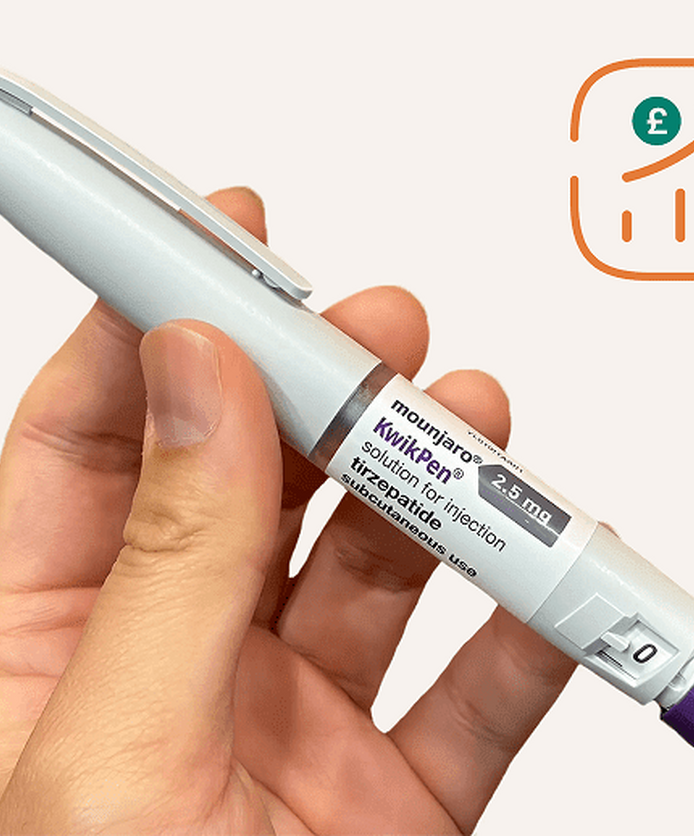
Complete consultation
Fill out a brief questionnaire to assess your qualification for the treatment.
Select medication
Choose the medication that suits your needs based on the consultation results.
Receive order
Treatment is dispensed and delivered discreetly to your home or work.
Combined Pill
Microgynon and Rigevidon contain both progestogen and estrogen. They prevent ovulation, ensuring you cant get pregnant. You’ll need regular blood pressure and BMI checks while using these pills.
How to take it: Take one pill daily for 21 days, then have a pill-free break for 4 or 7 days. If you experience discomfort during the break, you can skip it.
Possible side effects: include increased blood pressure and slight risk of blood clots
Mini Pill (progestogen-only Pill or POP)
Mini Pills such as Desogestrel, Lovima and Hana, contain only progestogen. They are suitable for those who cannot take combined pills due to various health reasons.
How to take: Take one pill every day at the same time without any breaks.
Possible side effects: You may experience irregular bleeding initially, but is usually settles within few months. No blood pressure or BMI checks are necessary with these pills

Why Choose Contraception
Contraception is more than just preventing pregnancy; it offers numerous benefits for women, including:
- Family planning: Control the timing and spacing of pregnancies to suit your life goals.
- Regulating Menstrual Cycles: Many contraception methods can help regulate menstrual cycles, reducing irregularities and discomfort.
- Health Benefits: Certain contraceptive methods can provide additional health benefits, such as reducing the risk of ovarian cysts and preventing acne.
- Improved Quality of Life: With the right contraception, you can enjoy intimacy without the constant worry of an unplanned pregnancy
-
How effective is Contraception?
Our contraception medications are highly effective, with success rates of up to 99%. However, it’s essential to use them correctly and consistently for optimal results.
-
What are the common side effects of contraception?
Side effects can vary depending on the type of contraception used. Common side effects may include nausea, headaches, changes in menstrual cycle bleeding patterns, breast tenderness and mood changes. Its essential to discuss potential side effects with a healthcare provider before starting any contraceptive method.
-
Are there any long-term health risks associated with contraception?
While contraception is generally sage for most individuals, some methods may carry long-term health risks. For example, certain types of hormonal contraceptives may slightly increase the risk of blood clots, especially in women who smoke or have other risk factors. It’s crucial to discuss any concerns about long-term health risks with a healthcare provider.
-
Can I use contraception if I have a history of medical conditions?
Many individuals with pre-existing medical conditions can safely use contraception. However, certain conditions may affect the choice of contraceptive method or require additional monitoring. Its essential to discuss any medical history or concerns with a healthcare provider before staring contraception.
-
What are progestogen and estogen, the active ingredients in these medications?
Progestogen and estogen are hormones crucial for the female reproductive system.
Progestogen is a hormone that stops ovulation and thickens cervical mucus to prevent sperm from reaching the egg.
Estrogen is the hormone that helps regulate the menstrual cycle and maintain the uterus lining. It also supports the effectiveness of progestogen in preventing pregnancy.
Together, these hormones form the basis of hormonal contraceptives like pills. They work by mimicking the body’s natural hormone levels to prevent pregnancy. If your unsure about which contraceptive is right for you, Consult with our Curely specialist for personalised advice.


What to Do About the Mounjaro Price...

Does Propecia work?

Switching from Mounjaro to Wegovy:...

What are the side effects of Propecia?

What is Propecia?

